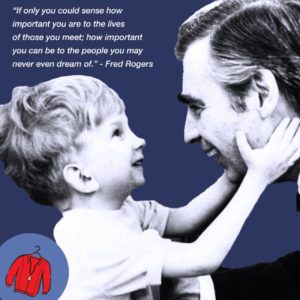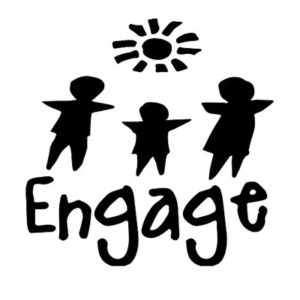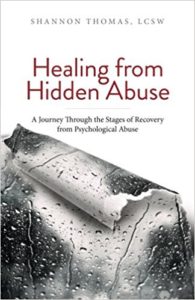 03 Dec 2018
03 Dec 2018
Loneliness
I’ve had the privilege of working with many different types of people-addicts, veterans, couples, singles and even a few kids. Although they each had individual issues, they each grappled, in some way, with loneliness.
At it’s core, loneliness is about a lack of connection. That connection could have been broken by the death of a loved one or the end of a relationship. Another type of loneliness can occur when a person makes a whole change of environment. Perhaps you moved to a new state for a job or fresh start. Making new friends can take time and that might lead to some lonely days. Loneliness can be weakened or strengthened depending on one’s perspective. Let’s focus on three types of loneliness and take a look at strategies to overcome these types of loneliness.
Loneliness in relationships:
Most of my work is with couples. Couples can lead a lonely existence in a relationship when they don’t feel listened to. Being lonely in a relationship seems odd because we’re with somebody. We share space with that person. But if key ingredients are missing then the feelings of loneliness can and most likely will occur. Communication is a main “relationship” ingredient and if BOTH sides of the couple aren’t willing to work on this skills, that loneliness of not being heard and listened to can lead a spouse or significant other to another person or the end of the relationship.
Typically after an initial session, I email all my couples worksheets on reflective listening skills and creating fair fighting rules in handling disagreements. Bad listening is a learned behavior that perhaps we learned from our parents. We can learn new behaviors to improve our listening abilities. Having fair fighting rules, if you use them, can move a couple from an adversarial relationship (Me, you, win, lose) to learning to fight the problem together and not against each other. These are building blocks in becoming less lonely in a relationship and more connected.
Loneliness in singleness:
Are you single? Do you struggle with loneliness? Maybe not every day, but sometimes? I can relate. I didn’t get married until I was 41 years old. I spent most of my young adult life in single groups and dating sites on the internet hoping to find that one connection that would cure my feeling lonely. When I was 30, I watched a lot of friends get married. I kept asking God when was it going to be my turn to start a family. I wasn’t a hunk, but I’ve always been a nice guy. “Nice guys finish last.“ I felt like that and my loneliness led me to have some incredible pity parties. Me, myself and I showed up and all three of us never made the party better. It wasn’t until I started working on myself and focusing on personal growth areas that I began to change and that brought about a different perspective shift.
My focus took a change to where it wasn’t all about me. My identity wasn’t rooted in desperation to be with someone any more. I found my security as a single person was rooted in my faith and having healthy friendships. I could be independent and happy and still be single. One day I was listening to a guest speaker at my church and he had experienced incredible loss in his life. He had lost his whole family in a massive flash flooding accident? He was the only one that survived. Google: Robert Rogers family and learned how he coped; had appeared on many of the morning talk shows and people asked him how he could go on and survive such a tragic event. He said it was the peace of God that was getting him through it and quoted this verse that changed my life:
 Philippians 4:6-7: Do not be anxious about anything, but in every situation, by prayer and petition, with thanksgiving, present your requests to God. And the peace of God, which transcends all understanding, will guard your hearts and your minds in Christ Jesus.
Philippians 4:6-7: Do not be anxious about anything, but in every situation, by prayer and petition, with thanksgiving, present your requests to God. And the peace of God, which transcends all understanding, will guard your hearts and your minds in Christ Jesus.
Right then the light bulb turned on in my brain. I wanted that peace in my love life. So, at 38 years old, this scripture set me on a new path. I trusted all of my hopes, my dreams and my expectations of being with someone over to God’s care. I had to be at peace whether I married someday or never dated again. What about you? If you’re single, how have you coped with feeling lonely in your singleness? Moping about it and having endless pity parties won’t help. Remember, if you do nothing, nothing changes. Focus on others. Volunteer at your church or a community group. Find social groups that align to your interests and hobbies so you can meet other people. If you need more ideas, reach out to me. I can help because I’ve been there. I would love to help you take the first few steps of finding happiness in being single.
Loneliness in children:
One little documentary was released this summer that captivated the nation if not the world. Won’t You Be My Neighbor? is about Fred Rogers and his passion for making connections. He connected with kids like almost nobody else. He showed them that no matter who they were, they had value. They mattered, and they are loved. He also listened to the children he interacted with. He was genuinely interested in what they had to say. That told them that they had a voice. Most of us have seen Mr. Rogers Neighborhood on PBS when we were younger. The message of Mr. Rogers needs to be repeated over and over. Because many of today’s kids feel like they don’t have a voice except on social media and sometimes that’s a scary place to be. Research continues to show that kids and teens that are constantly on social media and not interacting in person are more prone to loneliness and self esteem issues.
The ills of society have left our kids feeling lonely. Divorce has caused kids pain and hurt and even damaged their thoughts. Often, their hopes are drowned out by the roar of their parent’s anger. Some children become pawns in a game of power play that parents create to get their kids to side with them.
What can we do about this growing epidemic?? Here are a couple of suggestions.
- Interact with your children. Make time to take them on parent-child dates. Trips in the car are valuable for conversation. Listen to them. Get to know you kids interests, hopes and fears. Find out who their friends are and get to know their parents. Have fun with your kids and let them know it’s ok to have feelings, good and bad.
- Be consistent in your own behavior. Follow through with what you say you will do. Model appropriate behavior around your children. Your kids are watching you and they look to you for moral, emotional, structure, and spiritual guidance. If you’re not providing these, the child that gets older can become more susceptible to listening to those voices and examples that do not have their best interests in mind.
Lastly if a child is lonely, we have an incredible opportunity to help them form healthy connections? Do they have someone they can talk to and spend time with like a teacher, friend, relative, mentor or parent? We all need healthy connections and children are not different. This article has just scratched the surface to what some face. Counselors at Armstrong Family Counseling have a wealth of experience to help adults and children cope with loneliness.
Connecting with others is a big way to overcome the stigma of loneliness. If you are lonely and need to talk, contact us today.
 14 Jun 2018
14 Jun 2018
Can Talking To Someone Help My Anxiety?
There is an old proverb, Confession is good for the soul. But is it really?
It sounds odd but can talking with somebody make you feel better? It can and it does. But why does it work? Why can just something as simple as talking about something that you are worried about, or feel guilty about make you feel better and less stressed?

To understand that question you have to understand how memory storage in our brains work. Doctors as far back as the 1890’s have recognized some memories fade into nothing and some memories resist that fading away. Mostly the memories that won’t fade are ones that are charged with emotions.
Simply, there is a part of us that feels and there is a part of us that thinks. Generally, we want to keep these things in balance. However, in life when we are scared, worried, guilty or sad we feel those emotions strongly. When your feelings are strong it diminishes your capacity to think; especially, your ability to say what you are feeling.
Have you ever seen a parent tell their screaming child to “use your words.” The parent instinctively recognizes that a child has to calm down and talk before they can stop being hysterical. That is because when the part of your brain that feels gets overwhelmed your body will actually shut down parts of itself in order to conserve fuel. When the “fight or flight” part of your mind is triggered, energy is diverted from other parts of your brain-systems in order to give you energy to fight of run. One area that is impacted is your ability to think rationally.

So, let’s say you got in an argument that escalated. Or that you made a mistake at work and are scared you will be fired for it. So, in that moment you are feeling strong emotions instead of thinking. If you do not communicate with anyone about it, after your emotions have calmed down, you will be putting that memory into the bookshelf of your mind with an emotional charge.
So what does an emotionally charged memory do? An emotionally charged memory is one that when you think about that memory you feel that emotion all over again. So you could be lying in your bed after having had a great day but start thinking about something from your past and BAM! Right there in your bed you feel what you felt then. Despite the fact that you just a moment ago felt at peace with the world. That is an emotionally charged memory.
Going back to the initial question, why does talking help you feel better? Because in order to take the charge out of a memory you have add thought to that memory. Remember that you both think and feel. A memory that is all feeling and no thinking will remain a charged memory. But when you talk about the past, especially when you think about what you were feeling and why, it helps add thought to that memory . A memory that has thought and feeling in it a memory that can be put on the bookshelf of your mind and just fade into the thousands of other memories there.
When you talk to someone who influences you to think about why you felt what you felt it can make that emotional charge go away which feels wonderful. This is why the whole practice of counseling even exists. To help people remember their past without feeling what they felt in the past.
Do you feel that you are haunted by your past? Do you feel that there are things in your past that you will never get over? Let’s get together. I can help you move forward. Contact me today!
 06 Jun 2018
06 Jun 2018
A Key to Connecting with Your Kids
Just Get Out of the Comfort Zone. Just Be DAD.
Remember the song “Danger Zone” from the movie Top Gun? I loved that movie, and the Kenny Loggins song is a must for any retro fan. In the movie, the song was the perfect soundtrack for those flying scenes, as the pilots pushed their aircraft to the limits and beyond, into the danger zone, where the engines could stall or worse. It was a perilous place to be.

Serious mountain climbers know about the “death zone.” On Mount Everest and some of the other highest peaks in the world, once a climber reaches about 26,000 feet, the amount of oxygen is insufficient to sustain human life. Many climbers have died because they weren’t properly prepared or didn’t have enough oxygen with them.
Most of us will probably never climb into a fighter jet cockpit or attempt to summit the world’s tallest mountain, but there is another danger zone where we dads often find ourselves with our families: the comfort zone. I like being in the comfort zone. It’s free of stress and the craziness of life that is so often around me at home. Some might call this my “happy place.” There are times that we need an oasis where we can drown out life around us and find peace and serenity. But if we want what’s best for our families, the comfort zone is a place we are never meant to stay for very long.
When I first got married, I married not only my wife but also her family, which included two boys in their mid to late teens. For a while I had a hard time building a relationship with them. I’d get home from work in the evening and they’d usually be in the living room, watching a television show I didn’t get or couldn’t care less about. It was much easier for me to get my dinner and retreat into the more comfortable sanctuary of my bedroom. I could read a book or watch TV and I didn?t have to engage with them unless it was on my terms.
At the time, I thought: What was the point? I couldn’t relate to them and they certainly couldn’t relate to me, at least on the surface. Clearly, I was missing the point. I was off in my comfort zone, and I wasn’t going to be intentional about being a dad to them.

My wife LeeAnn was so patient with me, and every now and then she would enter my serene hideaway and remind me that I didn’t marry just her, but also two boys she loved deeply. If I wanted to develop a better relationship with them, I had to leave the Comfort Zone. I had to engage them.
That word “engage” has transformed who I am as a father. This didn’t happen overnight, and there were starts and stops as I kept fighting off selfishness and the desire to go back to the Comfort Zone. But then one day my father-in-law gave me advice on how to be intentional as a dad. He said that if I wanted to become closer to the children, I had to drop the labels, quit thinking of them as my stepsons and foster daughters but rather as my sons and daughters. I had to stop labeling myself as a step dad and foster dad, and just be dad. He said the labels that we use often create distance and give those of us that are not biological dads an excuse to keep that separation.
I had to stop labeling myself as a step dad and foster dad, and just be dad.
He was right. While an attorney might say that, from a legal perspective, step and foster kids are the correct wording, I have grown past that and see them as my children, for as long as God allows them in my life. Several months ago, we decided after 5 years of fostering, to take a break. It was good for our marriage, and last year, I discovered a whole new zone: The Grandparent Zone. Our youngest son and his wife gave birth to a beautiful baby boy. Now I get to learn to just be grand-dad!
Being an engaged dad means being hands-on and enthusiastically involved in your children’s lives. It’s getting to know them on their level and being consistent in letting them know you are there. It also means that as they get older you are coaching them and modeling how to live by your actions and how you live. An example of this is how they see you handle conflict or adversity and perhaps more important, how you treat your spouse or their mother. Believe me, your young ones are watching.

You can’t do these things by being in your comfort zone. That sends a whole other message that says “Leave me alone,” or “You’re not worth my time.”
That sounds cruel, doesn’t it? Yet our country is full of disengaged fathers. I see it in the neighborhood we live in, and as a foster dad, I see it in the families of the girls we work with. Many dads are physically absent, others are present but emotionally distant, and some have hurt their kids so much that they aren’t allowed to be around and in their life.
Engaged fathers and father figures really do make a difference. Since I have left my Comfort Zone as a dad, my relationships with both of my stepsons are vastly improved. Things are far from easy, but they can see that I’m more interested in them and many more activities and conversations have had positive results.
Do your relationships with your children need a transformation? Be an intentional, hands-on dad. You will make mistakes here and there, but you will also learn from them. Embrace your role as a father and make a difference in the lives of other kids. Close up shop on the Comfort Zone.
Even now, I have days when the comfort zone is awfully tempting. But I rely on my faith, my patient and loving wife, and other dads who encourage me.
Just Get Out of the Comfort Zone. Just Be DAD.

**Original article published by the National Center For Fathering**
 28 May 2018
28 May 2018
Is It Time To Separate?
“Is choosing to separate the best option for me?” Choosing to separate in a marriage is never an easy decision to make. It is my hope that by reading this article you can gain some perspective on the topic of separation. A separation is different from a divorce in that you and your spouse will still legally share all parental and financial responsibilities. Also separations tend to have many different flavors. Here are the 3 most common types.

The Working Separation
In a working separation the couple separates in order to spend time improving themselves. Maybe a spouse has a mental health issue they are working on, or perhaps one spouse has an addiction they need to focus on. Working separations are best when there is an informal agreement between the two partners. This agreement will ideally have an explanation as to what issue needs to be worked on, who will take care of the kids and other responsibilities, what limits or boundaries are placed on communication (we’ll only communicate through text or email, or no communication for 2 months, etc.) and on what grounds will reconciliation take place. Working separations have the highest chance of resulting in reconciliation. If you think this is the type of separation you are looking for please contact a therapist or counselor–like myself--and draw up this contract with their input and guidance.

The Trial Separation
A trial separation is when one or more persons in the marriage express a desire to try what being single feels like. The idea is that the person is given time to clear their head. Afterwards they will then decide on whether or not to pursue reconciliation. One person generally will move out, either to another part of the house or to another place all together. Trial separations most commonly occur in families without young children.
These separations have a high rate of ending in divorce because most people leave a marriage when the pain and frustration are so high that staying seems impossible. Then, when they leave they find that being single has less pain and frustration then being married and make the jump to divorce.

The Legal Separation
This option is pursued most often when a marriage has become stale and anemic; there is little good in the marriage but also little frustration also. The couple may stay together for the sake of the children or because they both feel that becoming single is not attractive.
Whatever type of separation you are considering please understand that separation is a matter of last resort. Typically, divorce is the result of separation far, far more often than reconciliation. That being said if you separate when your pain and frustration haven’t yet caused you to give up there is a better chance of reconciliation afterward compared to waiting until you have one foot out the door.

 21 Apr 2018
21 Apr 2018
The Mental Health Benefits of Physical Self-Care
Saying the mind and body are connected is nothing new. The Ancient Greeks attempted to understand the mental phenomena of emotions and their complex connections to physiological order. That fascination continued through the Roman era, the Renaissance, and on throughout history — and that’s just Western European culture. Physicians and philosophers all over the globe have explored the mind and body connection since the beginning of time and even recent science backs up the claim that they are intrinsically connected.
If you are not taking care of your physical self, your mental health is likely not where you want it to be. For instance, one of the main symptoms of depression is poor personal hygiene. Addicts are another good illustration of this problem. Addicts turn to self-harm in the form of drug or alcohol abuse as a way to cope with their own mental health issues. While environmental and genetic components also contribute to the disease, the mind/body link plays its part.
Taking the time to take care of the physical self can have a helpful impact on your mental health and addiction recovery. In addition to seeking help and supervision through a physician, try incorporating the following self-care rituals into your routine.
Establish a Solid Sleep Routine
Sleep is awesome, so why do so many of us get so little of it? According to the American Sleep Association, 50 to 70 million American adults have some sort of sleep disorder, insomnia being the most common one. Sleep problems are common in addicts, as well. Drug and alcohol abuse disrupt the body’s natural rhythm along with the neurochemicals and hormones that help control rest. After a while, the body forgets how to rest properly.
Thankfully, you can retrain your body by establishing a sleep routine and following it religiously. It’s not just about going to sleep and waking up at the same times every day — although those two things are key. Practicing good sleep hygiene has a lot to do with how you spend the hours before bedtime.
- Limit stimulants including nicotine and caffeine.
- Invest in some soothing herbal teas you can drink leading up to bedtime to help brain and body relax.
- The glow of your television, computer and smartphone screens keep the brain alert. Turn them off and put them away an hour before bed.
- Turn your bedroom into a sanctum of rest. Buy yourself nice linens, keep the room temperature cool, and use a white noise machine or essential oils to create ambience.
- Read a chapter of a book before you fall asleep to help your mind wind down. If you are still not sleepy, read another chapter until you are.
Exercise Regularly
You may think exercise is just something you have to do if you want to lose weight, but it’s essential to the addiction recovery process. Drugs and alcohol trick your body to think it needs them by triggering the brain’s reward system. When you give up those substances, you can help beat cravings with exercise. Physical activity also stimulates that part of the brain while also releasing neurochemicals like dopamine and endorphins, which relieve pain and promote a positive mindset. You don’t have to train for a marathon to get these benefits, either. Just walking an extra half hour a day provides significant benefits.
Explore Healthy Stress Release

Finding some way to release stress and anxiety in a healthy manner is essential for addiction recovery. Meditation, yoga and hobbies like knitting help people tune out those thoughts and criticisms without having to use drugs or alcohol. Think of them like exercise for your brain. During these mindful exercises, you will experience negative thoughts. However, by recognizing those thoughts, dismissing them and returning your attention to your activity, you are training your brain to dismiss them on its own. The more you practice, the easier it becomes and your brain learns to automatically pass over self-criticisms in your day-to-day life so you can stay focused.
***
Since the mind and body are connected, your physical health has a significant impact on your mental health and vice-versa. When you struggle with a mental health issue like addiction, incorporating a solid sleep routine, exercise, and healthy coping mechanisms for stress all contribute to recovery. Incorporate daily physical self-care routines in your efforts to heal yourself holistically.
**Visit Brad’s website and learn more about becoming the best you here

 12 Mar 2018
12 Mar 2018
Am I Married To A Narcissist?
I get asked this question a lot in my counseling sessions. So, I thought I would take some time to address it here. Most of the time I am asked by one member of a marriage or relationship if their partner is narcissistic. Usually this is a question that they ask because they are genuinely confused as to why their spouse always seems to control the conversation, belittle or dismiss their opinions, or seem to have a sense of entitlement.
The first thing I check is if anyone else outside of the relationship sees this pattern? Do other family members, friends, or co-workers see these behaviors or is it just around you that he or she acts this way? If your spouse is treating other people this way and/or they have a history of doing this in their past, then it’s more likely that are narcissistic. However, what if you are the only one that they seem to act this way around. Does that make them a narcissist? Honestly, it makes it less likely. If a certain behavior only shows up in one setting, then there is something about that setting that is causing the behavior. In other words, if you are the only one who thinks your spouse is a narcissist then you might what to consider other possibilities. One possibility is that your marriage has reached gridlock.
However, what if you are the only one that they seem to act this way around. Does that make them a narcissist? Honestly, it makes it less likely. If a certain behavior only shows up in one setting, then there is something about that setting that is causing the behavior. In other words, if you are the only one who thinks your spouse is a narcissist then you might what to consider other possibilities. One possibility is that your marriage has reached gridlock.
A marriage that is in gridlock tends to look like this:
- There has been a long period of mutual pain, frustration or disappointment.
- It has been a long time since you each genuinely enjoyed being in each other company.
- When you fight neither you nor your spouse view it as productive.
- When you fight neither you nor your spouse feel heard.

Marriages in gridlock get that way because one or both spouses feel hurt. Because they have been hurt repeatedly by their partner they stop seeking the other partners well-being. Instead the hurt spouse begins to focus on damage control. Their goal becomes just getting through each day with their head down and hoping that they don’t piss of the other spouse.
This type of mentality causes a person to mimic many of the signs of narcissism. The person starts to control the conversation instead of listening because they are trying to prevent you from hurting them with your words or tone of voice. They begin to focus predominantly on their own opinion and will often stop trying to convince you they are right and will just tell you they are right. This happens because they haven’t felt “heard” in a long time. And when you don’t feel heard you shout your opinion even louder.

Furthermore, a gridlocked marriage can lead to a spouse developing a sense a sense of entitlement. This happens because both partners feel as though they have already given up a lot for this marriage and now their partner is asking for more.
Maybe they feel like they already do spend enough time with the kids, but you want more.
Or maybe they feel that they are already having sex more often they want, but you want more.
Often times their spouse doesn’t seem to appreciate how much they have given up to make this marriage work, so why give more up?
 Finally, narcissism and gridlock both look very similar because pain causes all of us to be self-focused and narcissistic. Have you ever known someone who is sick or in pain to not be narcissistic? So, if you think your spouse is a narcist get a second opinion.
Finally, narcissism and gridlock both look very similar because pain causes all of us to be self-focused and narcissistic. Have you ever known someone who is sick or in pain to not be narcissistic? So, if you think your spouse is a narcist get a second opinion.
Maybe you’re right and you are married to an unhealthy individual but what if is just a symptom that your marriage is near the point of no return? Are you willing to end a marriage without trying everything you could to save it? Seek a second opinion either from a trusted therapist or read a book on the subject.
For more information about being married to a narcissist I would recommend Shannon Thomas book “Healing from Hidden Abuse.” She outlines what narcissistic personality disorder looks like and how those people tend to behave.
If you are having troubles or unresolved issues in your marriage or relationship, I can help you. Reach out to me today and schedule your initial appointment.
 09 Feb 2018
09 Feb 2018
Choices = Energy
We all have bad days. It’s okay. But, it is essential to keep in mind that we all choose how much we allow our circumstances, at any given time, to influence our energy?positive or negative.
It?s okay to be human. We all make mistakes We all repeat the same slip-ups until we decide to choose another option?which often requires a paradigm shift. Changing one?s frame of mind is never easy. Change is hard!
Know what else is tough? Learning to walk and talk, but we did it?because we kept trying to learn. We were intentional about acquiring that skill because at that time, it was important to us.

At some point in adulthood, people get stuck in a cloud of shifting priorities. Work. School. Family. Church. Social engagements. We all?at one time or another?feel drained! The question is, what are we going to do about it?
For a change to happen, one must intentionally create new habits. These behaviors are meant to replace the old ways that were not contributing to our success. These new habits should be designed to impact areas in our lives that we need strengthened. Nothing changes, when nothing changes.
Meet Marty

Marty was just like you?busy, overworked, stressed. She?s a single-parent who works very hard to provide for her two boys.
One day, Marty decided that she was going to do something about her energy. She had been reading a book by Brendon Burchard, High Performing Habits, that inspired her to generate more positive energy by intentionally adopting simple habits that would allow her to do so.
On a Tuesday morning, Marty set 2 random alarms?one at 10:17 am , another at 2:29 pm?that prompted her to stop what she was doing and take 10 deep breaths. She was intrigued by how effortless and odd, yet apparently obvious this exercise seemed, because Marty had known for quite some time that she wasn?t taking breaks throughout her day to just breathe?and as a nurse she knew how vital breathing is to one?s well-being.

Her first alarm goes off. She gets up from the nurse?s station, walks outside, and starts to count 10 deep breaths. Once she has started breathing she is supposed to ask herself, ?what kind of energy do I want and need right now?? She thinks about her to-do list, the patients she is caring for, and then she feels gratitude.
?I am grateful that I have all of these things to do and that I am entrusted with these people to care for. I choose to BRING THE JOY!?
This heartwarming moment was a gamechanger for Marty. A few hours later, when her next alarm went off, she once again walked outside to get a breath of fresh air. She started to breathe and as she did she felt the tension release from off of her shoulders. She was in the moment. She had already ?brought the joy once.? She thought about what kind of energy she needed at that moment, then, like magic, she had laser-like focus as she intentionally dialed into her mind to generate the energy she wanted. She caught up her charting and made her rounds again?with the intention of bringing more joy!
Six months later, Marty still has her 2 alarms that go off, and she has found that she takes more time to be present, in the present. She is able to stay focused at work. She?s incorporated a 3rd alarm. This one goes off on her drive home. She breathes, releases the tension, and asks herself what kind of energy her family needs. These triggers, changed her behavior in a way that impacted her state of mind, her work, & family relationships. Marty took control of her energy production.

Another key aspect of generating energy is taking control of our health?optimize it. If it has been over a year since the last physical exam, ?we really should get one soon. We all have to start somewhere, and this is a good place. Finding out where to improve our health and our body, and then intentionally improving those areas will bless us with health, strength, and vitality.
Exercise plays a HUGE role in one?s ability to generate energy. A good place to start is in the morning. Wake up 10-15 minutes earlier, stretch, and do 5 push-ups. Do this Monday through Friday for a month. Get excited about waking up earlier to do this?after all, by doing this, you are changing the world (your world). Increase your exercise to, eventually, consistently exercising for at least 30 minutes a morning, 4-5x a week.
Robin Sharma said, ?Good health is a crown on the head of a well person that only a sick person can see.?

As we choose to do simple, different things like setting random alarms to breathe, breathing to intentionally set the tone, and optimizing our health, our bodies will reap from the choices we have sown. We will grow in health, mental clarity, and our ability to generate energy will have increased by leaps and bounds.
There are no shortcuts. Choices can and should be tough. Growth is never easy. Change is always possible. Change comes when we choose between comfort and wisdom?and choose to grow. It comes when we ask ourselves, ?What is TRULY best for me right now?? Then acting upon that answer.
Do you want the secret to life? Act. Do. Become.
Act on your choices, choose your reactions, and intentionally generate the energy and the feelings that are most important to you and will help you become the best version of yourself.
If you struggle with learning new habits, if you need help from a mentor to coach you as you strive to become all that you have the potential to become, or if you are ready to take it to the next level?career, relationship, personal life?then I can help you.
Click here to contact me to day for a free 30 minute consultation.
Get your copy of Brendon Burchard’s, High Performance Habits.

 25 Jan 2018
25 Jan 2018
Do You Have A Vision?
To know?where you are going, first?you need to?know who you are. Then, you need to?have a reason?to reach your destination.?Why?do you want to make it there??Why?is it important to you?

Dr. Stephen Covey, author of 7 Habits of Highly Effective People, says that you must?begin with the end in mind.?Focus with me?as his words?guide?your thoughts:
?In your mind?s eye,?see yourself?going to the funeral of a loved one.?Picture yourself?driving to the funeral parlor or chapel, parking the car, and getting out.?As you walk inside the building, you notice the flowers, the soft organ music.?You see?the?faces of friends and family?you pass along the way.?You feel?the shared?sorrow?of losing, the?joy?of having known that radiates from the hearts of the people there.
?As you walk?down in front of the room?and look inside the casket,?you?suddenly?come face to face?with yourself.?This is your funeral?three years from today. All these?people have come?to honor you,?to?express feelings?of love and appreciation?for your life.

‘As you take a seat?and wait for the services to begin,?you look?at the program in your hand. There are to be four speakers.?The first?is from your family, immediate and extended-?children, brothers, sisters, nephews, nieces, aunts, uncles, cousins, and grandparents?who have come from all over the country to attend.?The second?is one of your friends,?someone who can give a sense of what you were as a person.?The third?speaker is from your work or profession.?The fourth?is from your church?or some community organization where you?ve been involved in service.
?Now think deeply.?What would you like each of these speakers to say about you and your life?What kind of husband, wife, father, or mother would you like their words to reflect? What kind of son, or daughter, or cousin??What kind of friend??What kind of working associate?
?What character would you like them to have seen in you??What contributions, what achievements would you want them to remember? Look carefully at the people around you.?What difference would you have liked to have made?in their lives??

Think about those answers.?Take a minute to truly reflect. I would even suggest writing your answers down on a piece of paper.
Who you would ?have them remember you as?or what you would have them remember you for?is?your personal definition of success!
Using this exercise, I’ve defined my own roles in my life and this perspective has helped me to create a personal mission statement.?You must know who you are?and what you need to do to become the best version of yourself.?Doing this will be your?driving force?to get to your ultimate destination. This is called seeking clarity.

There is?great power?in?beginning with the end in mind.?As I strive to become the man I envision myself becoming, I have a?deeper satisfaction?in life. I have a stronger conviction?to accomplish my goals.?I have a purpose. I also have a reason to challenge myself by setting goals to develop into the best version of myself.
To?truly?know where you are going,?to have a clear vision?of where you are headed;?you must first have a clear picture of?who you are.
As your life coach, I can help you develop your vision, help you set goals to achieve your vision, and inspire you to grow into the person it will take to make your vision a reality! Contact me today for a free consultation.




